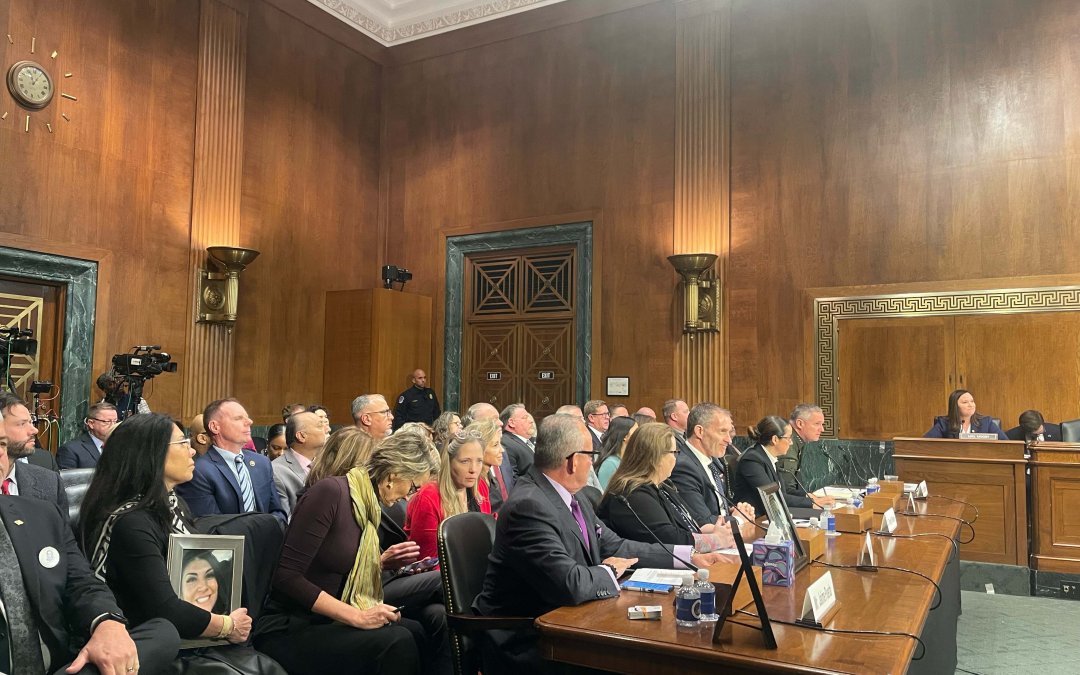WASHINGTON – The Senate Judiciary Committee met Tuesday to tackle the fentanyl epidemic and the persistently high opioid-related U.S. death rate as the Trump administration introduced trade measures targeting illegal drug trafficking networks in Mexico, Canada and China.
Sen. John Cornyn (R-Texas) said the Trump administration framed the tariffs as an anti-fentanyl measure, not a trade policy. He said China is under pressure to curb precursor chemical exports, which often reach Mexico, where drug cartels design them into counterfeit pills.
President Donald Trump planned to impose a 25% tariff on imports from Mexico and Canada but has delayed the tariff hike by one month after negotiating with leaders of both countries on Monday.
On Tuesday, a 10% hike on Chinese imports took effect at midnight, with Trump saying the move would “protect Americans” against fentanyl production and trafficking.
The committee debated reclassifying fentanyl from a Schedule II to a Schedule I drug under the Controlled Substances Act. The change would place fentanyl in the most restrictive drug category.
“I believe that [re-scheduling] will increase penalties for trafficking and distribution. It also streamlines prosecution by removing the burden of proving whether a particular fentanyl analog is harmful. It would be illegal by default, and it would give authorities greater flexibility as well to target emerging fentanyl analogs before they flood the market,” said Jaime Puerta, President and Co-Founder of Victims of Illicit Drugs.
Overdose deaths linked to synthetic opioids, primarily illicit fentanyl, accounted for an estimated 74,702 deaths in 2023, according to the Centers for Disease Control and Prevention.
The committee heard testimony from parents who have lost their children to fentanyl overdoses.
“My son Daniel’s death is one of countless tragedies,” said Puerta, who lost his 16-year-old son in 2020. “His story is a call to action. He made a mistake, and the price was his life.”
Senators on both sides of the aisle said tackling the issue requires bipartisan action.
“I’m sick and tired of excuses being made, and people dying as a result, and I think it’s time for us, on a bipartisan basis, to find things we agree with,” Sen. Dick Durbin (D-Ill.) said.
Sen. Eric Schmitt (R-Mo.) asked Cecilia Farfán, an expert on organized crime, if Mexico is doing enough to curb fentanyl production and trafficking.
“There’s definitely more that can be done by Mexico,” she said. “I think working closer with U.S. counterparts and also having these diagnoses of the connection between … arms trafficking and drug trafficking [will] really benefit communities on both sides of the border.”
She also emphasized that addressing the fentanyl crisis requires not only targeting its supply but also scrutinizing the firearms industry in the U.S.
Lawmakers pointed out how firearms trafficking fuels cartel operations, further complicating U.S.-Mexico cooperation on fentanyl enforcement.
Sen. Alex Padilla (D-Calif.) said that Mexico has “one legal gun store” and “according to [The Bureau of Alcohol, Tobacco, Firearms and Explosives] data, up to 500,000 U.S.-sourced firearms are trafficked into Mexico every year.”
Farfán told Medill News Service that these “are challenging times in the bilateral relationship,” and she understands that not everyone shares her point of view. But she said she was there to emphasize that if “you are serious about saving lives, you need cooperation.”
“The fentanyl market is not an isolated illicit market, it’s very much linked to the firearms trafficking market,” Farfán said. “If the crime is transnational, shouldn’t the solution also be transnational?”

